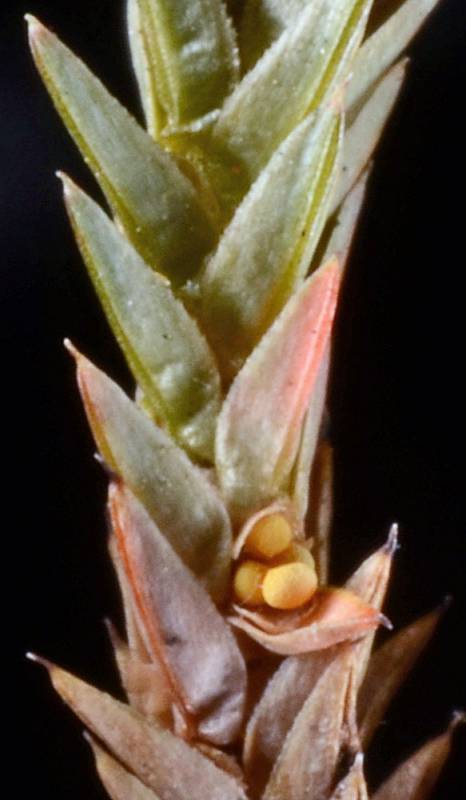Hosted by the University of Washington Herbarium, Burke Museum
Publication: Hedwigia. 39: 297. 1900.
Origin: Native
Herbarium search: CPNWH
Notes: FNA2: "Selaginella wallacei is extremely variable depending on its habitat (R. M. Tryon 1955). Plants in dry, exposed conditions have short stems, form compact mats with tightly appressed leaves adnate to the stem, and have a rather keeled, abruptly bristled apex. Plants from moist habitats have long stems, form rather moderately long-creeping mats, and have less appressed, decurrent, fleshy leaves, with a more plane-attenuate apex that gradually tapers into a bristle. Plants from exposed, dry conditions sometimes are confused with S . scopulorum , but they have a keeled apex with well-defined ridges on the abaxial groove whereas in S . scopulorum the leaf apex is ± plane and attenuate, and the ridges on the abaxial groove are not prominent. Plants from moist habitats somewhat resemble plants of S. underwoodii.
R. M. Tryon (1955) found strobili 9 cm long in Selaginella wallacei , the longest strobili known within subg. Tetragonostachys and comparable only to those of S. oregana."
Last updated 6/29/2023 by David Giblin.

